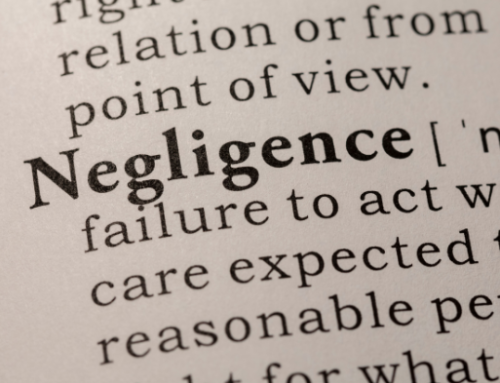Workplace Stress Claims: Your Workers Compensation Rights
Workplace stress and mental health conditions are prevalent in New South Wales workplaces. According to the Australian Bureau of Statistics, 42.9% of Australian adults have experienced a mental disorder in their lifetime. Often, stress or more serious mental health issues arise due to work-related factors. At Grieve Watson Kelly Lawyers we frequently encounter clients who are overworking, facing bullying and harassment from co-workers, or dealing with unfair management practices. Often our clients believe they have a workplace stress claim, whereas they actual have sustained a psychological injury.
For most of us, stress is manageable, especially when the underlying cause is temporary.
However, some individuals who experience stress as a symptom of more significant mental health conditions. If stress, anxiety, or depression persists and a taking some personal leave doesn’t help, this article may be for you.
Can You Claim for a “Stress Claim”?
Unfortunately, a workers’ compensation claim specifically just for “stress” is not recognized under New South Wales’ iCare Scheme. Stress itself is not considered a medical condition for this purpose. To make a successful workers’ compensation claim, you need to be diagnosed with a recognized medical condition. This diagnosis may be referred to more generally as a “psychological injury,” “mental health condition,” or other correct medical definitions.
Understanding Stress and Mental Health Conditions in the Workplace
Stress often serves as a description or symptom of more significant mental health issues. If you’re experiencing high levels of stress, it’s crucial to consult a medical professional. Depending on your unique circumstances, what you perceive as “stress” might actually be a medical condition. Here are some common examples of mental health conditions:
Remember that your health should be your primary focus. Consult with your general practitioner (GP) to discuss your symptoms and seek professional guidance. While the specific condition itself isn’t the main concern for a workers’ compensation claim, your well-being takes precedence.
If your GP diagnoses a medical condition, you may be eligible to lodge a workers’ compensation claim.
What to Do If You’re Stressed: A Practical Guide
If you find yourself grappling with psychological workplace stress due to work-related factors, it’s essential to take active steps. Many workers attempt to soldier on, keeping their stress hidden and continuing to work. However, this approach is not advisable. If you believe you’re unwell and not improving, consider the following actions:
Should You Tough It Out?
We often deceive ourselves into believing we’re fine. However, if you suspect you’re unwell, chances are your co-workers, friends, or family have noticed too. Denying the severity of your condition can exacerbate your situation. Symptoms like poor sleep, anger, and lack of focus can impact your work performance. In response, your employer may initiate performance management or even terminate your employment.
Remember that prioritizing your health is essential. Seek professional guidance and take steps to address your well-being effectively. Hopefully the stress you experience resolves quickly with personal leave (sick leave) and lodging a workplace stress claim (psychological injury) isn’t necessary.
Psychological Injury Claim Elements
Section 11A
All too often workers are injured in the workplace and do not seek help for many reasons. They won’t tell their employer and they won’t seek help from a doctor. The result is often reduced performance in the workplace and your employer may start a performance management process or termination. Section 11A of the Workers Compensation Act 1987 (NSW) provide that:
11A No compensation for psychological injury caused by reasonable actions of employer
- No compensation is payable under this Act in respect of an injury that is a psychological injury if the injury was wholly or predominantly caused by reasonable action taken or proposed to be taken by or on behalf of the employer with respect to transfer, demotion, promotion, performance appraisal, discipline, retrenchment or dismissal of workers or provision of employment benefits to workers.
What does this mean for my psychological injury claim (or workplace stress claim):
-
- The 11A defence is a potential argument that iCare (the workers’ compensation insurer) can use to challenge your claim.
- It has 3 parts:
- Your psychological injury was wholly or predominantly caused by reasonable action taken or proposed to be taken (injury);
- Reasonable action is in respect of transfer, demotion, promotion, performance appraisal, discipline, retrenchment or dismissal of workers or provision of employment benefits to workers (actions); and
- The work is unable to prove that the main cause is another issue in the workplace, or the worker is unable to prove the conduct was unreasonable the employer (reasonableness).
- If you receive a dispute notice based on section 11A, it’s crucial to seek legal advice promptly.
- Our workers’ compensation lawyers can review your circumstances and determine if the 11A defence applies, whether your employer actions were reasonable and if you can successfully apply to the Personal Injury Commission.
Workers’ Compensation Benefits for Psychological Injuries (Workplace stress claim):
Seeking Legal Guidance About Workplace Stress claims
Navigating psychological or “stress” Workers Compensation claims can be difficult. If you’ve been seriously injured during the course of your work, consider reaching out to Grieve Watson Kelly Lawyers. Our workers compensation lawyers understand the complexities of personal injury compensation and workers compensation claims.
Disclaimer: This post provides general information based on NSW sources and laws and does not constitute legal advice. We recommend you consult with a lawyer to obtain legal advice for your individual circumstances.







